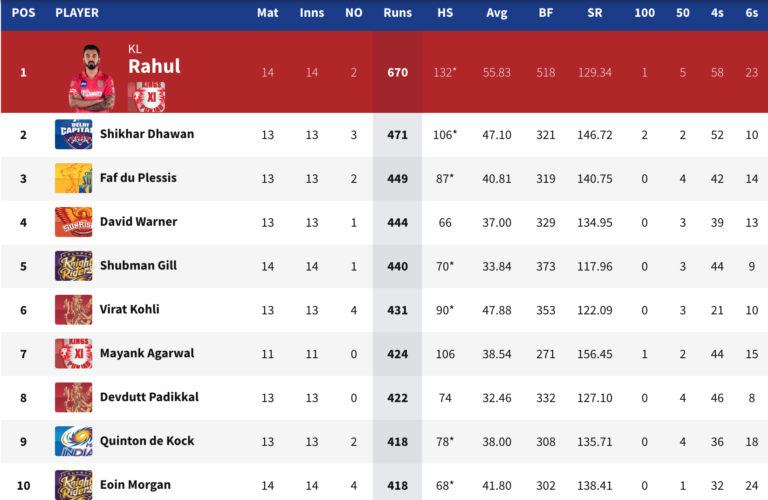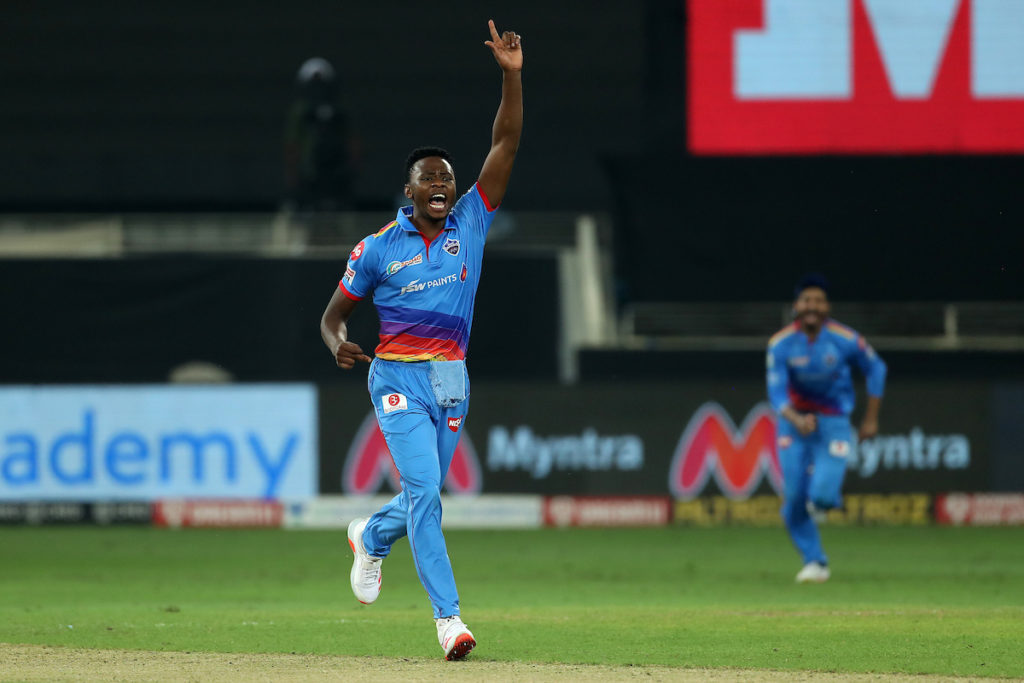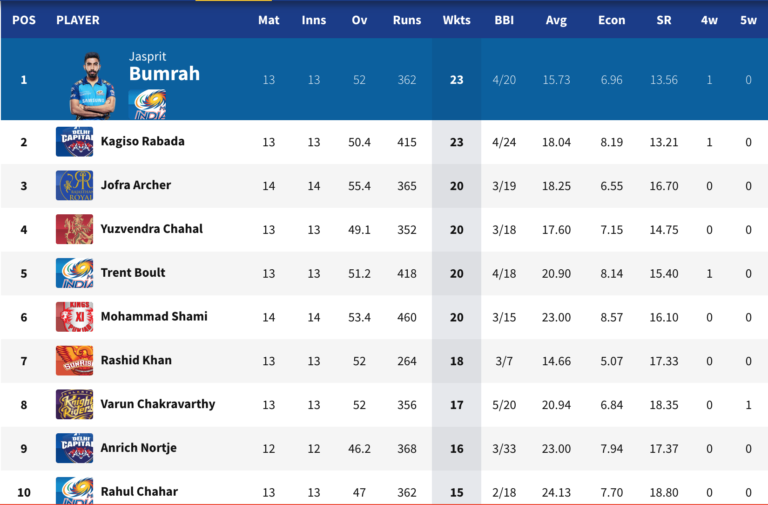KL Rahul’s mastery has edged out Faf du Plessis in the IPL to date, but there has been nobody better with the ball than Kagiso Rabada.
Rahul is in the T20 form of his life, the Kings XI Punjab opener having over 200 runs more than his closest competitor. Du Plessis has found some form after a tough South African summer, banking 449 runs at an average touching 41 and a strike rate close to 141. This is enough to have him sit at third on the tournament’s run-scorer’s list.
The Mumbai Indians’ Quinton de Kock is ninth, having scored 418 runs at an average of 38 and a strike rate nearing 136.
However, despite some of the best innings of the tournament, AB de Villiers wasn’t able to consistently deliver his unique brand of magic with the bat. He hovered around fifth place for the majority of the tournament, but has subsequently been overtaken. He is in 16th position, having scored 363 runs at an average of 45.37 and a strike rate of 163.51, which is second best in the top 20 outside Nicholas Pooran’s 169.71.
The next best South African batsman statistically is Kagiso Rabada, who is all the way down in 69th position with 41 runs. Chris Morris, with 34 runs, is the only other Saffa in the top 100 run-scorers.
David Miller, a kingpin of the Proteas white-ball teams, has played just once for the Rajasthan Royals.

On the bowling front, only Jasprit Bumrah has been able to match Rabada’s potency. The pair are the tournament’s joint-leading wicket-takers on 23. Bumrah edges Rabada on average (15.73 vs 18.04), economy (6.96 vs 8.19) but the Proteas speedster shades it on strike rate (13.21 vs 13.56).
Radaba’s Delhi Capitals and Proteas teammate Anrich Nortje has performed consistently well, collecting 16 wickets (ninth best in tournament) at an average of 23, an economy rate of 7.94 and a strike rate of 17.37.
Chris Morris has become a crucial part of RCB’s attack and sits at 16th with 11 wickets. However, of the bowlers in the top 20, his value is seen in his average of 17.36 (bettered only by Rashid Khan’s 14.66 and Bumrah’s 15.73), an economy rate of 6.43 (bettered only by Khan’s 5.07) and an excellent strike rate of 16.18.
Lungi Nigidi (28th) has taken nine wickets at an average of 18.55, an economy rate of 10.43 and an incredible strike rate of 10.66. Granted, he has only played four matches, but his performances during that time suggest he could have been an asset to the Chennai Super Kings, who are out of the tournament.
Imran Tahir is 67th, having played just three matches for CSK and tak
ing one wicket. Dale Steyn played an equal number and also took just one wicket for RCB.








